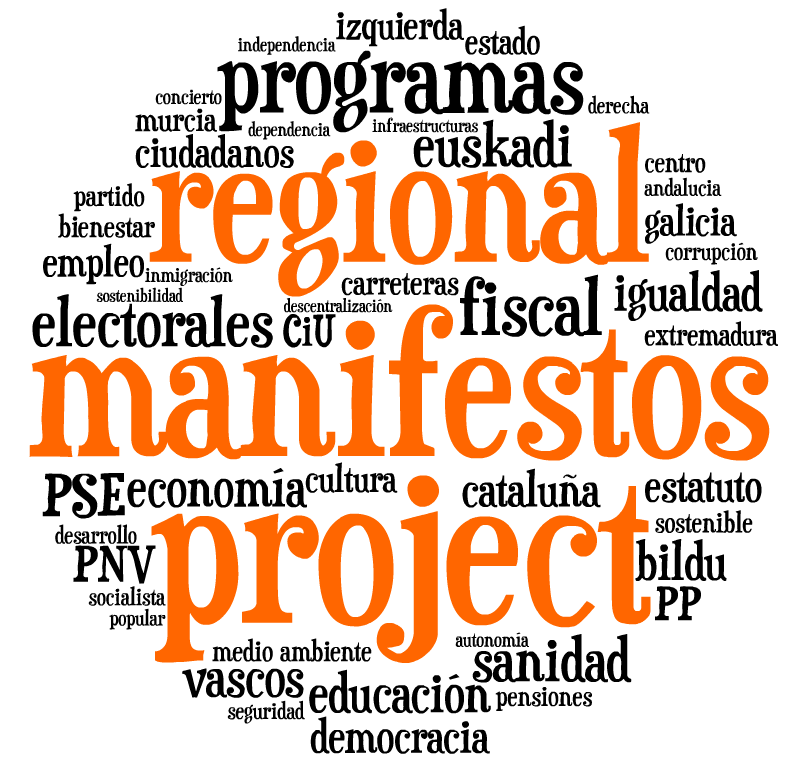REGIONAL MANIFESTOS PROJECT
THE EFFECTS OF DECENTRALIZATION ON THE STRATEGIES OF POLITICAL PARTIES
Visit the RMP's blog at: http://blogs.deusto.es/programasaldesnudo (in Spanish)
Visit the RMP's blog at: http://blogs.deusto.es/programasaldesnudo (in Spanish)

The Regional Manifestos Project is a research project funded by the Ministry of Economy and Competitiveness of Spain within the framework of the R&D&i National Plan. It started in 2010. Its main objective is to measure political parties’ preferences at the sub-state level using the content analysis of manifestos as data.
The project is based on an extension of the Manifesto Project’s methodology. The Manifesto Project has measured parties’ preferences over time since 1945 in fifty-four countries, thereby becoming the most used empirical reference in the study of political parties. This was recognized by the APSA prize to the best comparative politics dataset in 2003.
Our
methodology extends the Manifesto Project’s classification scheme
for content analysis to include parties’ territorial
preferences concerning the distribution of powers between the
state, on the one hand, and either lower or upper levels of
government, on the other. Thus we offer a methodological tool with
which to analyze the content of manifestos written in multi-level
settings.
How much relevance do parties give to different policy issues in their manifestos (education, sustainable development, economy, etc.)? Do parties claim for more or less competencies for a particular level of government (local, regional, national, European…) to deal with each policy issue? Do state-wide parties present similar manifestos across and within the different electoral arenas?
We are conscious of the scarcity of comparative data on parties at the sub-state level. For this reason we would like to open our data to the academic community and to all those interested in the electoral proposals of political parties.
The text unit of analysis of the coding procedure is the quasi-sentence, defined as an argument. Each text unit is assigned one numeric code. These codes uniquely identify each category of a classification scheme that captures policy, politics and polity preferences as well as all possible territorial preferences on the distribution of powers between the levels of government. Once each text unit has been coded we register the number of text units (i.e. quasi-sentences) that the manifesto dedicates to each category and we calculate this number as a percentage over the total number of sentences in the manifesto. This gives us the saliency score of each category or, in other words, the rate of mentions that this category (=preference) receives. A high saliency score is an indication that the preference is relevant for the party.
info@regionalmanifestosproject.com